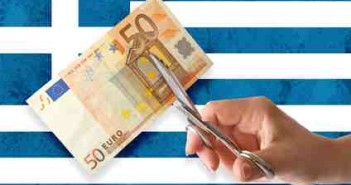Greece’s To Vima media outlet revealed that the EU sent euro banknotes worth billions via a secret air operation to the Bank of Greece.
It’s safe to assume that money made its way through airplanes rather than helicopters, but an airship is usually reserved to wars and evacuations, not bills of euro.
The cash was then distributed to the banks in order for them to be able to provide the high demand for cash by the Greek citizens in the peak of the crisis.
In June 2012, around the second round of the elections (which ended in a victory for the pro-bailout parties) there was a huge fear that Greece would leave the euro-zone, and Greeks preferred taking the money out of the system. Any kind of hint of bank run could have snowballed very quickly. Supplying the demand for bills was therefore crucial.
The amount of cash in circulation reached 48 billion euros, around a quarter of GDP, whereas most countries have around 6-8% of GDP in cash circulation during normal times.
This news shows how bad the situation was in Greece at the time. Since then, some trust and some money returned to Greece’s banking system. Greece’s economy is certainly deep in the woods, but the financial system is not in need of an airship operation.
For more: Greek Coalition Eroding – Lagarde List and Austerity Weigh



